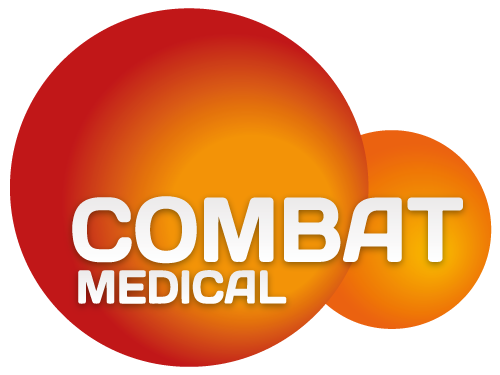Colorectal cancer is the second leading cause of cancer-related deaths worldwide, and has long been a focus of medical research. A groundbreaking new study published on 10th December in Gut, a leading international journal in gastroenterology and hepatology, has brought to light a startling link between the typical Western diet and the chronic inflammation that drives tumour growth. Conducted by researchers at the University of South Florida and Tampa General Hospital Cancer Institute, the study reveals how ultra-processed foods and inflammatory seed oils may be the root cause of this deadly disease.
“Our bodies are designed to actively resolve inflammation through bioactive lipid compounds derived from the healthy fats, like avocados, that we consume,” said Ganesh Halade, associate professor at the University of South Florida Heart Institute and a member of the Cancer Biology Program at Tampa General Hospital (TGH) Cancer Institute. “Bioactive lipids are very small molecules derived from the foods that we eat. If the molecules are coming from processed food products, they directly imbalance the immune system and drive chronic inflammation.”
However, the processed foods dominating the Western diet disrupt this balance, leading to chronic inflammation that feeds cancer cells.
The Western Diet and Its Components
The Western diet, as we all know, is characterised by high intakes of processed meats, refined sugars, and unhealthy fats. These ultra-processed foods (UPFs), laden with additives and preservatives, dominate this dietary pattern, while seed oils contribute inflammatory compounds to the body. Compared to traditional diets rich in whole foods, the Western diet stands out for its potential to disrupt immune function and promote chronic diseases.
Link Between the Western Diet and Chronic Inflammation
What makes the Western diet particularly insidious is its role in chronic inflammation. And this new study has uncovered a critical imbalance: an excess of molecules that drive inflammation and a shortage of those that resolve it. This imbalance, primarily fueled by ultra-processed foods, weakens the body’s natural healing mechanisms.
Key Findings of the Study
Using advanced analytical techniques, the researchers analysed 162 tumour samples from colorectal cancer patients. They identified an abundance of inflammatory lipid compounds derived from processed foods within the tumour microenvironment. These findings suggest that the immune system, when overwhelmed by such compounds, struggles to combat cancer effectively. Dr Timothy Yeatman emphasised that while the immune system can profoundly impact tumour growth, its potential is stifled when inflammatory lipids dominate.
Inflammatory Lipids and Immune System Function
The immune system is a highly dynamic and complex network that defends the body against threats like infections and cancer. However, its effectiveness can be drastically compromised by dietary influences. In the context of colorectal cancer, inflammatory lipids derived from processed foods interfere with the immune system’s ability to regulate the tumour microenvironment. Instead of supporting healing and resolution of inflammation, these lipids perpetuate a state of chronic inflammation.
This continuous inflammatory state not only suppresses the immune response but also creates an environment that promotes cancer cell growth and proliferation. Essentially, the immune system’s power is diverted away from its protective role, leaving the body more vulnerable to disease.
The Bigger Picture: Lifestyle and Cancer
While diet plays a pivotal role, it is only one piece of the puzzle. Lifestyle factors such as physical activity, smoking, alcohol consumption, and stress levels also significantly impact cancer risk. A sedentary lifestyle, coupled with poor dietary habits, compounds the inflammatory burden on the body.
Conversely, regular exercise has been shown to reduce inflammation and improve immune function. Integrating physical activity with a healthy diet can synergistically lower the risk of colorectal cancer and other chronic diseases.
Ongoing Research and Future Directions
The study opens the door for further exploration into the relationship between diet and cancer. Future research could focus on developing personalised nutrition plans tailored to individual inflammatory profiles. Additionally, large-scale public health campaigns could target dietary habits to reduce the prevalence of colorectal cancer. The findings also raise intriguing possibilities for therapeutic interventions. Could bioactive lipid supplements derived from healthy fats be used to counteract the effects of a Western diet? This warrants continued investigation.
Wake-Up Call
This study linking the Western diet to chronic inflammation and colorectal cancer growth should provide all of us with a wake-up call to the profound impact our food choices have on our health. We all need to make changes and shift away from highly processed non-foods, while embracing a more natural diet rich in anti-inflammatory fats. This is the only way we can empower our immune systems to better protect ourselves against cancer and other chronic diseases. Ultimately, the food on our plates holds the potential to either fuel or fight disease. “You are what you eat”, after all.
Original study:
Soundararajan R et al. Integration of lipidomics with targeted, single cell, and spatial transcriptomics defines an unresolved pro-inflammatory state in colon cancer. Gut Published Online First: 10 December 2024.
https://gut.bmj.com/content/early/2024/11/26/gutjnl-2024-332535

